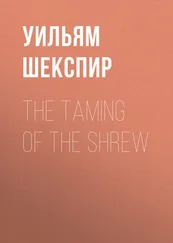Уильям Шекспир - The Works of William Shakespeare [Cambridge Edition] [Vol. 1 of 9]
Здесь есть возможность читать онлайн «Уильям Шекспир - The Works of William Shakespeare [Cambridge Edition] [Vol. 1 of 9]» — ознакомительный отрывок электронной книги совершенно бесплатно, а после прочтения отрывка купить полную версию. В некоторых случаях можно слушать аудио, скачать через торрент в формате fb2 и присутствует краткое содержание. Жанр: Европейская старинная литература, Драматургия, foreign_dramaturgy, на английском языке. Описание произведения, (предисловие) а так же отзывы посетителей доступны на портале библиотеки ЛибКат.
- Название:The Works of William Shakespeare [Cambridge Edition] [Vol. 1 of 9]
- Автор:
- Жанр:
- Год:неизвестен
- ISBN:нет данных
- Рейтинг книги:5 / 5. Голосов: 1
-
Избранное:Добавить в избранное
- Отзывы:
-
Ваша оценка:
- 100
- 1
- 2
- 3
- 4
- 5
The Works of William Shakespeare [Cambridge Edition] [Vol. 1 of 9]: краткое содержание, описание и аннотация
Предлагаем к чтению аннотацию, описание, краткое содержание или предисловие (зависит от того, что написал сам автор книги «The Works of William Shakespeare [Cambridge Edition] [Vol. 1 of 9]»). Если вы не нашли необходимую информацию о книге — напишите в комментариях, мы постараемся отыскать её.
The Works of William Shakespeare [Cambridge Edition] [Vol. 1 of 9] — читать онлайн ознакомительный отрывок
Ниже представлен текст книги, разбитый по страницам. Система сохранения места последней прочитанной страницы, позволяет с удобством читать онлайн бесплатно книгу «The Works of William Shakespeare [Cambridge Edition] [Vol. 1 of 9]», без необходимости каждый раз заново искать на чём Вы остановились. Поставьте закладку, и сможете в любой момент перейти на страницу, на которой закончили чтение.
Интервал:
Закладка:
This last error points to a very common anomaly in grammar; one which seems almost to have become a rule, or, at any rate, a license in Shakespeare’s own time, that a verb shall agree in number with the nominative intervening between the true governing noun and the verb.
In general, we do not alter any passage merely because the grammar is faulty, unless we are convinced that the fault of grammar was due to the printer altogether, and not to Shakespeare. We look upon it as no part of our task to improve the poet’s grammar or correct his oversights: even errors, such as those referred to in note (VII) to the Two Gentlemen of Verona , and notes (I) and (X) to the Merry Wives of Windsor , because we thought them to be Shakespeare’s own blunders, have been allowed to stand. But many phrases that are called bad grammar by us, and rightly so called, were sanctioned by usage among the contemporaries of Shakespeare, especially, no doubt, by the usage of conversation, even among educated persons. And as a learned correspondent (Dr B. Nicholson) remarks, this would naturally be the style of English which Shakespeare would purposely use in dramatic dialogue.
As examples of the anomalies of grammar sanctioned by Elizabethan usage we may mention: —
Singular verbs, with plural nouns, especially when the verb precedes its nominative:
Hath all his ventures failed? What; not one hit?
Merchant of Venice , III. 2.
Nominatives for accusatives:
She should this Angelo have married.
Measure for Measure , III. 1. 204.
And repeatedly ‘who’ for ‘whom.’
Omission of prepositions:
Most ignorant of what he’s most assured. Ibid. II. 2. 119.
– which now you censure him. Ibid. II. 1. 15.
The changes of accidence are less frequent than those of syntax, yet such occur. In the Folios verbs ending in d and t are constantly found making their second persons singular in ds and ts instead of d’st and t’st . This was a corruption coming into vogue about the time of their publication, and in the earlier Quartos we frequently find the correct form; for example, in Midsummer Night’s Dream , V. 1: ‘standst’ in Q 1is corrupted to ‘stands’ in Q 2and in Ff. We have therefore confidently replaced the correct form for the incorrect, even without authority to back us; looking upon the variation as a corrupt abbreviation of spelling.
But, in general, our practice has been not to alter the text, in order to make the grammar conform to the fixed rules of modern English. A wide latitude of speech was allowed in Shakespeare’s age both as to spelling and grammar.
It was not without much consideration that we determined to adopt the spelling of the nineteenth century. If we had any evidence as to Shakespeare’s own spelling, we should have been strongly inclined to adopt it, but to attempt to reproduce it, by operating by rule upon the texts that have come down to us, would be subjecting Shakespeare’s English to arbitrary laws, of which it never yet was conscious. This argues no want of education on the part of Shakespeare; for if Lord Bacon himself had rules for spelling, they were but few, as we may easily perceive by inspection of his works published under his own eye. But if we have not Shakespeare’s own spelling to guide us, what other spelling shall we adopt? Every student of Shakespeare has now an easy opportunity of acquainting himself with the text of F 1, by means of Mr Booth’s excellent reprint, and we are certain that not one of them will consider the spelling of that volume intrinsically better than that of our day. Rather more like Shakespeare’s it certainly is, but we doubt whether much is gained by such approximation, as long as it is short of perfect attainment. Moreover, in many of the Plays there is a competing claim to guide our spelling, put forward by an array of Quartos, of earlier date than F 1. To desert F 1for these, where they exist, would be but an occasional, and at best an uncertain means of attaining the lost spelling of Shakespeare, while the spelling of our volume would become even more inconsistent than that of F 1itself. Add to this; there are places, though, as has been seen, not many, where we have had to leave the reading of F 1altogether. How then shall we spell the correction which we substitute?
Corrections of metre are avoided even more carefully than those of grammar. For the rules of prosody have undergone perhaps greater change than those of grammar. There is no doubt that a system of versification has taken root among us very different from that which was in use in the earlier days of our poetry. The influence of classical prosody has worked in a manner that could hardly have been expected. Quantity in the sense in which the Greeks and Romans understood it, is altogether foreign to our speech; and our poets, willing to imitate the verse regulated by laws of quantity, have partially adopted those laws, substituting for long syllables those that bear a stress of accent or emphasis.
In Greek and Latin accent was essentially distinct from quantity, and verse was regulated entirely by the latter. In the modern imitation of classical metres, for want of appreciation of quantity, we go entirely by accent or emphasis, and make precisely such verses as classical taste eschewed. Thus we have learned to scan lines by iambuses, or rather by their accentual imitations, and a perfect line would consist of ten syllables, of which the alternate ones bore a rhythmical stress. These iambuses may, under certain restrictions, be changed for ‘trochees,’ and out of these two ‘feet,’ or their representatives, a metre, certainly very beautiful, has grown up gradually, which attained perhaps its greatest perfection in the verse of Pope. But the poets of this metre, like renaissance architects, lost all perception of the laws of the original artists, and set themselves, whenever it was possible, to convert the original verses into such as their own system would have produced. We see the beginnings of this practice even in the first Folio, when there exist Quartos to exhibit it. In each successive Folio the process has been continued. Rowe’s few changes of F 4are almost all in the same direction, and the work may be said to have been completed by Hanmer. It is to be feared that a result of two centuries of such a practice has been to bring about an idea of Shakespearian versification very different from Shakespeare’s. But we feel a hope that the number of Shakespeare’s students who can appreciate the true nature of the English versification in our elder poets is increasing, and will increase more as the opportunity is furnished them of studying Shakespeare himself.
Of course we do not mean to give here an essay on Shakespearian versification. Those who would study it may best be referred to Capell, in spite of the erroneous taste of his day, to Sidney Walker, and especially, if they are earnest students, to Dr Guest’s History of English Rhythms .
We will only state some of the differences between Shakespearian versification and that which has now become our normal prosody; namely, such as have excited an ambition of correcting in later editors. There is a large number of verses which a modern ear pronounces to want their first unaccented syllable. The following we quote as they appear in F 1, in the opening of the Two Gentlemen of Verona :
No, I will not, for it boots thee not. I. 1. 28.
Fire that’s closest kept burns most of all. I. 2. 30.
Is’t near dinner-time? I would it were. I. 2. 67.
These lines are all corrected by editors; and it is evident that there would be little trouble in altering all such lines wherever they occur: or they may be explained away, as for instance in the second cited, ‘fire’ doubtless is sometimes pronounced as a dissyllable. Yet to attempt correction or explanation wherever such lines occur would be ill-spent labour. A very impressive line in the Tempest is similarly scanned:
Читать дальшеИнтервал:
Закладка:
Похожие книги на «The Works of William Shakespeare [Cambridge Edition] [Vol. 1 of 9]»
Представляем Вашему вниманию похожие книги на «The Works of William Shakespeare [Cambridge Edition] [Vol. 1 of 9]» списком для выбора. Мы отобрали схожую по названию и смыслу литературу в надежде предоставить читателям больше вариантов отыскать новые, интересные, ещё непрочитанные произведения.
Обсуждение, отзывы о книге «The Works of William Shakespeare [Cambridge Edition] [Vol. 1 of 9]» и просто собственные мнения читателей. Оставьте ваши комментарии, напишите, что Вы думаете о произведении, его смысле или главных героях. Укажите что конкретно понравилось, а что нет, и почему Вы так считаете.
![Уильям Шекспир The Works of William Shakespeare [Cambridge Edition] [Vol. 1 of 9] обложка книги](/books/746589/uilyam-shekspir-the-works-of-william-shakespeare-c-cover.webp)











